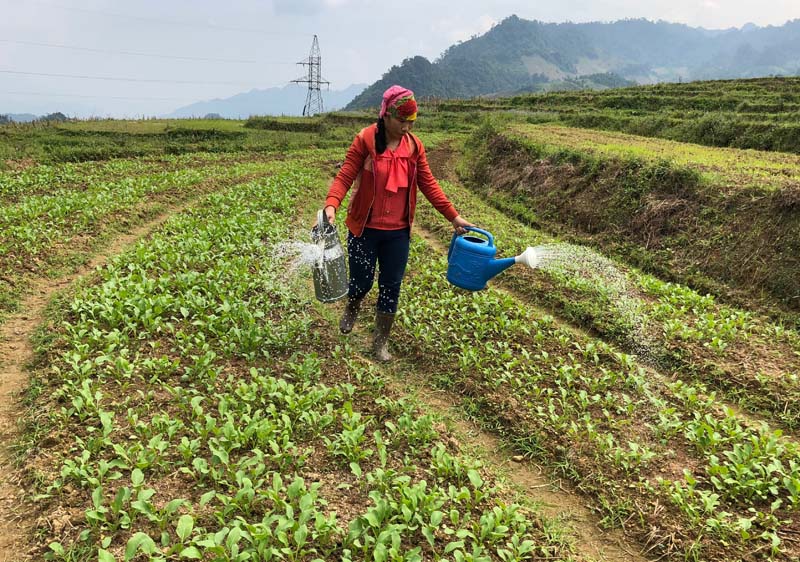


In order to increase the supply chain of safe food in
general and safe vegetables in particular to protect consumers’ health, the agro-forestry-fishery
product quality management sub-department
selected Tan Son commune of Mai Chau district to build a safe vegetable production
and consumption model applying Vietnamese Good Agricultural Practices (VietGAP).

Member
households of the Tam Hoa Cooperative applythe VietGAP production process
in vegetable cultivation.
Carried out since July 2018, the model is joined by
the Tam Hoa agricultural service and development cooperative and ten vegetable-farming
households. In order to effectively implement the model, many measures have
been taken to upgrade and improve infrastructure facilities to meet VietGAP
requirements for vegetable cultivation. A training course was organised for 20
local residents both members and non-members of the cooperative.
In order to ensure the efficient and sustainable
development of the Tam Hoa agricultural service and development cooperative,
the sub-department has supported the establishment of the VietGAP board to coordinate
with the cooperative in developing a quality management system, which focuses
on quality policy and objective, techniques for chayote, choysum, cabbage,
spinach, and pumpkin farming.
The system also includes regulations on management and
use of seeds, cultivation land, fertilizers, plant protection products; harvesting
and processing; and handling violations in meeting VietGAP requirements.
The cooperative has signed contracts and memoranda of understandingfor supplying safe
vegetable products with a number of safe
vegetable trading establishments
in Hanoi, Bac Ninh and Hung yen provinces./.